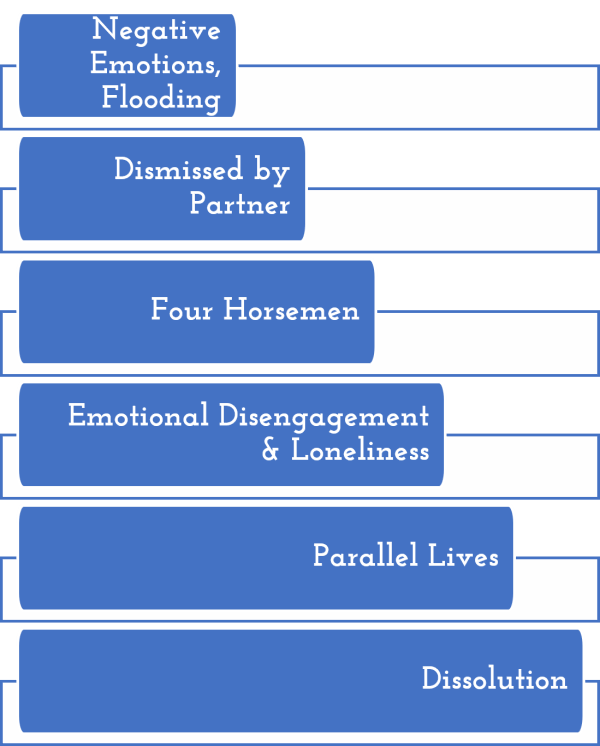“(Good leaders are) people who were good at … leading their lives from the perspective of their whole lives and (are) successful in all the different parts of their lives… They know how to be whole, which means to recognize and respect the fact that you’ve got not just work, not just family, not just friends and community, not just your private self. All four of these different parts matter.” Prof. Stew Friedman

Parents, would it surprise you to think of yourself as a leader? Most parents want to be successful at parenting, and leadership is a quality that can get you there. How can you be a good leader as a parent? Here is a great exercise to help you figure this out:
- Write your core values down.
- Write your parenting vision.
- Write down a description of a day 15 years from now.
- How and what will that day look like?
- What are you doing?
- Why are you doing it?
- What is the impact you are having?
- Define and create a collective parenting vision with your partner.
It is essential to have a conversation as a couple about these things. It can also be challenging. Especially if you find you have different values or define those values in different ways. Be sure to be gentle in the language you use. Use good listening skills with one another. Having a conversation like this can make all the difference in the world. It creates a roadmap for meaning in your parenting life. Roadmaps are vital to being able to lead with confidence to a destination that matters.
A Survival Kit for Your Relationship

A Survival Kit for Your Relationship
Our exclusive guide — Lockdown driving you crazy? Don’t strangle your partner, try this instead… is packed with information to help you and your partner come out of the pandemic with a stronger relationship.
“It’s natural to regress to old behavior. If you catch yourself regressing, give yourself a hug, appreciate your pain, shower yourself with enough love to calm down and relax, and then take your hand and lead yourself back to higher ground.” Beth Green in God’s Little Aphorisms: One-Liners from the Source

Ever heard the aphorism, “Under stress, we regress”? I love this observation since it explains what often happens when couples work to do things more healthily—for example, being more gentle with one another by avoiding using the Four Horsemen of the Apocalypse in your interactions. It can be challenging, but you are making progress. Then, wham! Some stress hits, and the old ways of interacting are suddenly back.
So now what? Keeping the aphorism in mind, make sure to give one another the benefit of the doubt. Talk about what happened and work to understand any stress that contributed. It is not a disaster when we regress; it just means we need to make repairs as needed. Dr. Gottman found that one of the differences between successful couples and those who were not was that successful couples made sure to repair when things got hairy. Here are a few good examples of ways to repair:
- Say, “I’m sorry.” Yup, this is an oldy, but a goodie. You may need a bit of footwork ahead of time, like talking about feelings and listening to one another to make sure each person feels understood, but it is well worth it.
- Take a break when one or both of you feel overwhelmed. When we are under stress, the likelihood of getting flooded (going into fight, flight or freeze) goes up. Having an understanding ahead of time about how to take a break as a couple, even in the middle of a discussion, can make a huge difference. Taking a break is a repair because, if you don’t take a break when you need one, it is very likely the interaction will not go well.
- One of my favorites is to have couples practice phrases like, “I feel criticized, can you rephrase that.” When one of the Four Horsemen comes through in the conversation, asking your partner to rephrase what was said can turn a conversation away from disaster. You can also stop yourself with, “That sounded critical, let me rephrase that,” if you realize it at the moment.
There are many other ways to make repairs in relationships, including using non-sarcastic humor. The important thing is to be gentle with one another when stress rolls around. Because, all together now, “Under stress, we regress.”
A Survival Kit for Your Relationship

A Survival Kit for Your Relationship
Our exclusive guide — Lockdown driving you crazy? Don’t strangle your partner, try this instead… is packed with information to help you and your partner come out of the pandemic with a stronger relationship.
“When we attune with others we allow our own internal state to shift, to come to resonate with the inner world of another.” Dr. Dan Siegel

Have you ever felt disconnected from your partner? It’s not a good feeling to have. What to do about it? Having ways of connecting and knowing how to do this is vital to having a healthy relationship. Knowing how to attune to your partner is the trick.
According to Collins English Dictionary, attunement is “an attuning or act of making harmonious.” Making harmonious sounds pretty fabulous in the context of your relationship, right? OK, here’s how to do it. There is a handy acronym that I use as a Gottman therapist, which gives the roadmap.
- Awareness of the situation at hand. You need to know how your partner is feeling.
- Tolerance of different viewpoints. It is imperative to understand that each of you has different perspectives that are very real for each of you and are likely different.
- Turning toward. Find ways of connecting with your partner. It can be as easy as asking, “What’s up?”
- Understanding. Ask clarifying questions to help you understand your partner’s inner world.
- Non-defensive listening. Take note of what your partner says without trying to come up with your responses as you listen. Be curious. Ask those clarifying questions.
- Empathy. Try to sense your partner’s emotions and imagine what they may be thinking or feeling. If you’ve been asking questions and listening non-defensively, you are well on your way to being able to empathize.
And that’s how to attune to one another! So if you ever start to feel disconnected, ATTUNE!
A Survival Kit for Your Relationship

A Survival Kit for Your Relationship
Our exclusive guide — Lockdown driving you crazy? Don’t strangle your partner, try this instead… is packed with information to help you and your partner come out of the pandemic with a stronger relationship.
“In any given moment, we have two options: to step forward into growth or step back into safety.” Abraham Maslow

Ever wondered what it would take to change your relationship for the better? Here are five things that could do just that. How do we know? Because these things are what we found looking at couples who were successful in their relationship.
- Have a check-in at the end of the day with your partner. Talk about important, exciting and interesting events of the day. Have a stress-reducing conversation as needed. Set aside 30 minutes for this conversation daily.
- Have a weekly date lasting at least three hours long. I know, I know, you’ve heard this before from me. It’s what successful relationships do. So it makes this list!
- Be sure to be turning towards one another throughout the day in positive ways. These moments put lots of deposits into your emotional bank account with your partner and create a buffer for tough or stressful moments.
- Here’s one for the male partners of the world. Research shows that if you bring up attention to low-level irritability within a few days of noticing it, you can significantly improve the happiness in your relationship. So bring it up gently and have a conversation of at least half an hour. Address anything that needs addressing if it relates to something in the relationship. Offer support in managing stress or some other issue if it is from something outside the relationship. Whatever is needed. Mostly, notice it and show that you are there for your partner by having that conversation.
- When you are apart from your partner (OK, nowadays that would be when you are in the other room), keep positive thoughts going about your partner.
That’s it. Do these five things, and your relationship will change for the better.
A Survival Kit for Your Relationship

A Survival Kit for Your Relationship
Our exclusive guide — Lockdown driving you crazy? Don’t strangle your partner, try this instead… is packed with information to help you and your partner come out of the pandemic with a stronger relationship.
“A little magic can take you a long way.” Roald Dahl

There is magic in relationships. I swear! Dr. Gottman discovered, from research on thousands of couples, that certain couples had what it took to succeed. One of the things he found was a magic ratio. The couples who were successful over the long haul had a ratio of five positive interactions for every negative one in their conflict discussions and a ratio of 20:1 in everyday interactions.
Wow! So think back to the last tiff you had with your sweety. Maybe it was about that thing that bothers them about the lines at the grocery stores these days. It doesn’t bother you, but you hear them talking about it again. Did you sigh grumpily? Or maybe make a sharp comment? What successful couples tend to do is balance these moments with a positive or neutralizing gesture. It could be gentle humor, eye contact, a listening queue, saying something supportive or physical contact (a shoulder bump, pat on the hand, etc.). In short, moments of appreciation and affection. Five times more of these kinds of interactions than the grumpy or sharp moments.
In everyday life, without conflict, the ratio in a successful relationship jumps to 20:1. These are just as important. The concept is the same, though. More positive than negative. So my advice? Take stock of how often you have positive interactions and compare them to the negative moments. If the ratio is off, look for moments to build positive interactions back into your relationship. For some ideas on how to do this, check out: How to Create Appreciation and Gratitude in Your Relationship, Date Night Blues and Rituals Are Not Just for Religion and Bedtime.
A Survival Kit for Your Relationship

A Survival Kit for Your Relationship
Our exclusive guide — Lockdown driving you crazy? Don’t strangle your partner, try this instead… is packed with information to help you and your partner come out of the pandemic with a stronger relationship.
“Life is never made unbearable by circumstances, but only by lack of meaning and purpose.” Victor Frankl

Do you have a mission statement for your relationship? No, not the corporate kind about shareholder profitability (snore!). The kind that ques up the Mission Impossible music in your mind! If you don’t, it’s time to create one. Why? Because we know from research that creating shared meaning is essential to continued relationship satisfaction! A mission statement can help you do that. It doesn’t have to be a long term mission, either, but one you can both align on to get you to a destination. I really like Donald Miller’s framing on how to create a mission statement, not just for companies, but for individuals, couples and families. Here is a quick primer on how to create one, including the elements needed to accomplish the mission. These are: define the required key characteristics, the critical actions to take, and a story pitch to remind you of why you are on this mission. This pitch includes a theme for the mission, its foundation.

The statement is just the start. What characteristics does this couple need to accomplish this mission? These can be characteristics that need developing, not just ones the couple already has. It is essential only to choose three (about the limit of what we can remember, so keep it simple) and put them in rank order. For our example, the characteristics could be supportive, loving and trustworthy.

Now, what actions does this couple need to take to be a safe harbor for one another? These must contribute to the mission and be repeatable. As with the characteristics, keep them simple and maximum three. For our couple looking to manage stress, the critical actions could be: 1) Have a daily stress-reducing conversation. 2) Keep communication positive (i.e., without the four horsemen). 3) Have rituals of connection that relieve stress, like taking an evening walk together.
The last element is a story pitch — like in Hollywood! The pitch helps to remind you of the reason you are doing this and helps to keep you energized around your mission. The pitch for our couple: “We know life can be stressful, which can cause irritability, burnout, and conflict. That’s why we will help one another to manage stress so that we are calm and successful no matter what life throws our way.” Did you catch the theme at the end there? The theme is the why of what you’re doing. Your theme should include two components, 1) a truth put into action 2) that creates a result.
So there you have it — a mission and everything you need to accomplish it! In his podcast, Donald Miller gives an example of a family mission about spring cleaning and a garage sale that benefits a charity. So give it a listen for another detailed example.
Creating a mission statement with all the bells and whistles is a fabulous date night activity. And it doesn’t have to be just one conversation. Create an outline of each of these steps and develop them over a few weeks. Perhaps make creating a mission statement your first mission!
A Survival Kit for Your Relationship

A Survival Kit for Your Relationship
Our exclusive guide — Lockdown driving you crazy? Don’t strangle your partner, try this instead… is packed with information to help you and your partner come out of the pandemic with a stronger relationship.
Remember the Four Horsemen of the Apocalypse? No, not the ones in the Bible. The other ones, those that can ruin relationships. Yup, in what can feel like apocalyptic times, there are relationship meltdown points Dr. Gottman calls the Four Horsemen of the Apocalypse. These are criticism, defensiveness, contempt, and stonewalling. You must get rid of them. Why? Because they predict divorce more reliably than anything else. Thus the apocalypse of your relationship if not addressed. Just working on eliminating them will do wonders for your relationship. And contempt is the worst of them!
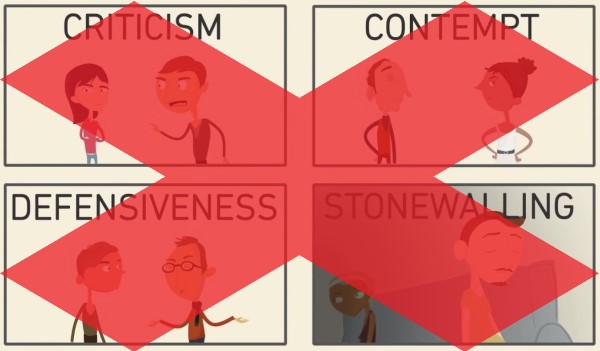

The antidote to contempt is to describe your feelings and needs. When tempted to put your partner down, stop. Instead, take a moment to figure out what is going on. Ask yourself, “Am I angry? Irritated?” It may be that you need to have a conversation with your partner about that, instead of calling them a name. For this, use the softened approach. The formula is: “I feel about . I need ”. Start the conversation with something like, “I’ve been feeling irritated about how money is being managed. I need us to talk about how to handle all these expenses.” Working on creating a culture of respect and appreciation in your relationship will also go a long way to making contempt a thing of the past. Look for the things you appreciate and share them with your partner; this can make a big difference!
“Communication is a skill that you can learn. It’s like riding a bicycle or typing. If you’re willing to work at it, you can rapidly improve the quality of every part of your life.” Brian Tracy

A Survival Kit for Your Relationship

A Survival Kit for Your Relationship
Our exclusive guide — Lockdown driving you crazy? Don’t strangle your partner, try this instead… is packed with information to help you and your partner come out of the pandemic with a stronger relationship.
!['So many frustrating family dynamics and workplace dramas erupt because of the misplaced belief that manipulation [of] motivation is the key to changing behavior. But … simplicity is what reliably changes behavior.' — Dr. BJ Fogg](/images/Blog-Images/marc-szeglat-VbP9v1rh-sc-unsplash.jpg)
If you’re anything like me, hearing “tiny habits” might make you think small means weak. It turns out the opposite is true! Dr. BJ Fogg talks about creating tiny habits in his book, “Tiny Habits: The Small Changes that Change Everything.” Baby steps are essential in building new ways of, well, anything really, including new ways of interacting with one another. But don’t resort to the old standby of nagging your partner into submission! It is essential to keep in mind that creating positive interactions will do more for making changes than anything else. This is the idea behind “small things often,” which comes out of the research of Dr. Gottman. He learned this from watching successful couples interact in healthy ways. Whether it is in making tweaks to how you have conversations or making intimate moments for frequent, small positive interactions, tiny is the way to go!
The first thing to learn is how to compose a tiny habit recipe. Here’s the general formula: After I … (choose an anchor moment), I will … (the tiny behavior); then, I celebrate (your choice)! All you have to do is figure out what these three elements need to be for the habit you want to create. The first element is to identify an anchor moment. This is an existing routine or event in your life that will remind you to do the tiny behavior (the second element). This tiny behavior is a scaled-back version of the new habit you want to develop; it should be super small and super easy. One way to think about it is what is the first step you would take to perform the action. Then you get to decide how to celebrate immediately. This could be by smiling, doing a slight head nod, visualizing fireworks, inhaling and thinking of energy coming in, whatever works for you. This is important, as the celebration is what gets your brain interested in repeating the tiny behavior in the future.
You can now create tiny habits with your partner to boost moments of connection in your life! To get you started, here are some examples of how to use the recipe for making tiny habits that improve your relationship:
- After we get into bed, we will kiss one another for six seconds. Then we will bask in the moment of closeness a moment more, nose to nose.
- After I notice my partner doing something positive, I will say how much I appreciate it. Then I will give them a quick hug.
- Or how about this one: When my partner irritates me, I will remind myself of one quality I admire in my partner. Then I will imagine a gentle glow around me.


You get the idea. Note that tiny habits do not have to be done as a couple (as with the kissing example). They can be a habit one partner does that is positive for the relationship (as the last example). Have a conversation together about what you want to try. This is a great way to increase intimacy, whether you decide on one to do as a couple or not. If you fancy diving deeper into tiny habits, head on over to tinyhabits.com.
Get more like this straight to your inbox!
Plus our exclusive guide Things your mama never told you about talking dirty…
In this time of global concern and stress, it is worth taking a moment to make sure we are taking care of ourselves and our families. Part of this is taking care of our mental health, which means managing the stress as effectively as we can.
“The vast majority of cases are going to be mild, and people are going to recover just like they do from a cold or flu-like illness.”
— Dr. Amesh Adalja
Senior Scholar at the Johns Hopkins Center for Health Security

Below are some links to resources that could be helpful. I want to briefly outline the tips that the California Association of Marriage and Family Therapists put together. Their public service announcement is aimed at reducing anxiety and stress during this time:
- Practice acceptance. It is normal to feel uneasy at this time. Allow for your feelings and also allow for the fact that most of us are not in immediate danger, that we’re working together to find solutions.
- Make a plan. Comfort yourself by controlling what you can, like washing your hands. Check out the Red Cross Coronavirus Safety and Readiness Tips, and share your readiness plan with your family.
- Stay in the present moment. When we bring our mind into the present, we realize that we’re ok. Make sure your mind is where your body is. Use a mantra, if that’s helpful—“This too shall pass.” Meditate. When you feel overwhelmed, turn your attention to your five senses to ground yourself.
- Don’t overexpose yourself to the news. Repeatedly viewing or listening to the same scary story can push your nervous system into full panic mode. Schedule just a few times a day to turn on the news or look at the internet for about 20 minutes at a time. Set a timer to keep yourself from fixating on the scary stuff.
- Pay attention to your body. Our brains and our bodies are intricately connected. We feel better emotionally when we feel physically rested. Make sure you are eating healthy, getting a little exercise, and practicing good sleep hygiene. See if you can find a part of your body that feels at peace and calm. Sit with it a bit, see if you can visualize or describe the sensation—maybe it’s a shape, a color, a sound… Check-in with yourself a couple times a day in this way.
- Practice deep, slow breathing. When you practice this, you’ll feel less anxious because your lungs will send a message through your vagus nerve to your brain that all is well. Breath in for a count of six, breath out for a count of six; do this for one full minute or more.
- Stay connected. We are biologically wired to connect with one another, there is real healing in connection. Make sure you’re not isolating more than necessary. Use technology to your advantage, using video chats and other means, as appropriate. Instead of social distancing, think physical distancing.
- Keep a balanced perspective. Even in the most challenging times, we can find a few aspects of our lives that are going well. If you realize you haven’t laughed or smiled in a while, watch a funny show or call a friend who makes you laugh. Even amid a crisis, we can find silver linings.
The only other thing I will add is to support one another in your relationship as much as you can. The best way, at this point, is to practice having a stress-reducing conversation. For tips on how to do this, see the blog Holiday Survival Kit, the last bullet point. If you find yourself in conflict with your partner (e.g., differences of opinion as to how much you should be going out), be sure to discuss things calmly. It is essential to avoid the four horsemen—see 3 Ways To Stay Calm When Your Partner is Driving You Nuts!; How to Get Rid of Criticism and Defensiveness; and Contempt, the Battery Acid for guidance around this. If it feels like the discussion has turned into one that is all too familiar, it may be a perpetual issue. In this case, talking about it in a specific way is important—see Do the Same Arguments Keep Coming Up Again and Again With Your Partner?
Here are a few reminders and suggestions for talking to your partner if you find you’re feeling frustrated and misunderstood:
- Remember, your partner has good intentions, and your partner loves and values you!
- When you’re feeling overwhelmed, you’re likely to be more reactive, and it’s much harder to connect with your partner. Practice grounding yourself first, by understanding how your body feels and what your core emotions are (the ones underneath whatever irritation, anxiety, or anger you may be experiencing).
- Ask your partner what his/her perspective and emotions are, being intentional about listening to understand, not listening to respond. Your partner has valid feelings about this, too! Your emotions and your partner’s underlying emotions make sense—focus on learning how.
- During and after listening to your partner share, reflect back what you heard him/her say to check for accuracy. Invite your partner to add or clarify.
- Validate your partner’s perspective and emotions (make sure to ask what he/she is feeling!): “It sounds like you’re feeling because . That makes sense to me! (or:) I would feel that way if I were in your shoes.”
- Switch roles and have your partner listen while you share.
Phew! That’s a lot of information! My hope is that you and yours stay healthy and that we pull together to make it through this challenging time as safely as possible.
My thanks to Wren Gray-Renebrg, AMFT (AMFT 109983), for her contributions to this blog.
A Survival Kit for Your Relationship

A Survival Kit for Your Relationship
Our exclusive guide — Lockdown driving you crazy? Don’t strangle your partner, try this instead… is packed with information to help you and your partner come out of the pandemic with a stronger relationship.
Helpful Resources
California Department of Public Health:
Centers for Disease Control and Prevention:
Red Cross:
- Coronavirus: Safety and Readiness Tips for You
- Steps to Help Cope with Evolving Coronavirus Situation
- What You Should Do If Caring for Someone with Coronavirus
CAMFT (California Association of Marriage and Family Therapists):
NPR:
- Just For Kids: A Comic Exploring The New Coronavirus
- COMIC: I Spent A Day In Coronavirus Awareness Mode. Epidemiologists, How Did I Do?
The Mesothelioma Center has a Guide to Coronavirus for Cancer Patients
There is also good news around all this. Peter Diamandis has been collecting some of these stories, so tune in for the positive as well.
If you want to give meditation a try, Headspace is making available a Weathering the Storm collection, free for everyone. It includes meditations, sleep, and movement exercises to help you out.
BJ Fogg, Director of the Behavior Design Lab at Stanford University and author of Tiny Habits, is offering Tiny Habits for Coronavirus Challenges.
If you need support from a mental health professional, and you are in California, you can contact me for my availability. I also offer telehealth as a remote option. You may also contact Wren Gray-Renebrg, or reach out to one of these resources to find a therapist near you:
Get more like this straight to your inbox!
Plus our exclusive guide Things your mama never told you about talking dirty…

Why should you care about rituals? Well, for starters, they are necessary to have in any healthy relationship. Like it or not, we are creatures of habit. Making sure you have healthy habits in your relationship—practices you can count on to stay connected with your partner—is essential. We call these rituals of connection. Bill Doherty first coined this term in his book The Intentional Family.

 Rituals of connection work best if they are thought out and planned. Here’s what to think about: When will the ritual happen? How often? Where? Who will initiate it? How will it unfold? How will it end? Here is what I recommend: Have a conversation with your partner about a ritual of connection you would like to create as a couple. If you would like inspiration, the Gottman Card Decks app has a deck with great ideas to consider, called, aptly enough, Rituals of Connection. Choose one of these and first share with your partner why you chose the one you picked (what’s important about this for you). If your partner agrees with the suggestion, answer the questions above to make practical plans to incorporate it into your relationship.
Rituals of connection work best if they are thought out and planned. Here’s what to think about: When will the ritual happen? How often? Where? Who will initiate it? How will it unfold? How will it end? Here is what I recommend: Have a conversation with your partner about a ritual of connection you would like to create as a couple. If you would like inspiration, the Gottman Card Decks app has a deck with great ideas to consider, called, aptly enough, Rituals of Connection. Choose one of these and first share with your partner why you chose the one you picked (what’s important about this for you). If your partner agrees with the suggestion, answer the questions above to make practical plans to incorporate it into your relationship.
It’s a good idea to have a conversation about rituals of connection regularly, at least once a year. You want to see if there are any changes you wish to make to tailor these to what you need at that moment. For instance, if you think of bedtime rituals, you will realize that these rituals change as children grow. It should be the same in your relationship. Make sure that you have rituals of connection in your life that keep you connected consistently! For other examples of rituals of connection, take a look at these blogs: Holiday Survival Kit, 7 Valentine’s Day Date Ideas, and Is Technology Ruining Your Relationship?
Get more like this straight to your inbox!
Plus our exclusive guide Things your mama never told you about talking dirty…

 Have you ever binged streaming episodes on your favorite service (Netflix, etc.) only to come around to yourself and realize the whole weekend is gone? Or have you ever felt like the last time you had a real conversation was sometime in the past century? All too often, we get wrapped up in our online accounts and other forms of media, at the expense of ignoring those we love and other priorities. Even cartoonists have turned their focus on this issue; take, for example, this cartoon by Trevor Spaulding, which appeared in The New Yorker magazine on April 27, 2015.
Have you ever binged streaming episodes on your favorite service (Netflix, etc.) only to come around to yourself and realize the whole weekend is gone? Or have you ever felt like the last time you had a real conversation was sometime in the past century? All too often, we get wrapped up in our online accounts and other forms of media, at the expense of ignoring those we love and other priorities. Even cartoonists have turned their focus on this issue; take, for example, this cartoon by Trevor Spaulding, which appeared in The New Yorker magazine on April 27, 2015.

I recently heard an interview on the podcast Design Matters with Debbie Milman. Debbie interviewed Tiffany Schlain, (who created the Webby Awards) and who, among other accomplishments, has written, “24/6: The Power of Unplugging One Day A Week.” Tiffany has practiced and is a proponent of taking a tech sabbath (time off from technology use) one day a week. Whatever you think as to the merits or deterrents of technology, there has been more and more attention paid to the effects of it on our lives. It is worth considering how to manage this powerful tool to make sure technology is helpful to us (in work, and even in love — such as staying connected) while also minimize some of the downsides it can have (the loss of eye contact and the constant distractions it can supply, both of which can erode intimacy).
 Here are some of the suggestions Tiffany has for managing tech in general:
Here are some of the suggestions Tiffany has for managing tech in general:
- Practice not looking at your phone the first thing in the morning.
- Instead, replace this habit with something that gives you joy (like kissing your partner, journaling, and/or drawing).
- Wear a watch so that checking the time doesn’t encourage the rabbit hole of a smartphone.
- Carry a notepad in your bag as an alternative to your phone, again to manage possible rabbit hole moments more mindfully.

And here are suggestions for preparing for a tech sabbath:
- Make a wish list of things you wish you had more time to do. Pull out this list on your tech sabbath, and/or plan these activities for your tech sabbath. I would suggest making connection time with your spouse and other meaningful relationships a priority.
- Make sure you have a clock in your home.
- And a landline!
- Have a black marker and a big pad of paper to write things down you want to remember.
- Consider what rules you would like to have (when will it begin and end, what is allowable, etc.).
- Make sure you have modified rules for travel and other occasions that may arise.
Live one day a week analog-style, and you might be surprised what you will be gaining! Although it may feel daunting at first, you will likely learn some wondrous things about yourself and your community (remember the library? The park?). You may find that you are more excited about and proficient in your technology use when you are using it. You may find that you begin to look forward to this time off of tech to concentrate on other priorities, such as connecting with your partner and others!
Get more like this straight to your inbox!
Plus our exclusive guide Things your mama never told you about talking dirty…

 If you haven’t made plans yet for Valentine’s Day, it’s not too late! There are plenty of great things to do, not only on Valentine’s Day but for the weekend and beyond.
If you haven’t made plans yet for Valentine’s Day, it’s not too late! There are plenty of great things to do, not only on Valentine’s Day but for the weekend and beyond.
Valentine’s Day can be a great day to develop a ritual of connection. Rituals of connection are ways to stay connected consistently. They provide a way you can count on to interact in both small and important moments throughout the day, the week, and the years to come. Examples include date night, birthdays, how we greet one another at the end of the day, etc. It is a good idea to discuss these. Talk about why it is important (why you’ve chosen to talk about it). Then go into the nitty-gritty of incorporating it into your life (the who, what, when, and where of it).

For Valentine’s Day, our culture promotes various different ways to celebrate, most of which are date night type activities. Date night is essential as a ritual of connection for couples. I’ve talked about its importance and some ideas for what to do in Date Night Blues, but here are some great ideas for Valentine’s Day:
- Take a chocolate-making class together (there are plenty of options, search online for one close to you).
- Tour a few of your favorite places as a couple. Each person chooses 2-3 places to tour that have been important to you as a couple. Visit these and remember the good times together.
- Night at the museum. Many museums have evening events on special occasions. Check out your local museum websites for events. One related example is Chocolate, Champagne and Art at the Gallery House in Palo Alto, CA.
- Have a poetry reading. Check out the local library for romantic poetry and read to each other favorite poems over a glass of wine.
- Take a Ghost Tour! For example, Valentine Haunt and Ghosts of Valentine’s are options in the Bay Area.
- How about the Great San Francisco Pillow Fight!? This is held at Justin Herman Plaza on Market Street at 6 p.m. Valentine’s day.
- Have a themed dinner and a movie night at home. For example, watch 50 First Dates dressed in your favorite Hawaiian shirts and enjoy an umbrella drink!

Notice that some of these options are pretty low cost. It doesn’t take much money to create a Valentine’s Day ritual of connection that can be one more way of keeping the romance stoked in your relationship. You can also check out other rituals of connection ideas on the Gottman Card Deck app under rituals of connection. Happy Valentine’s Day!
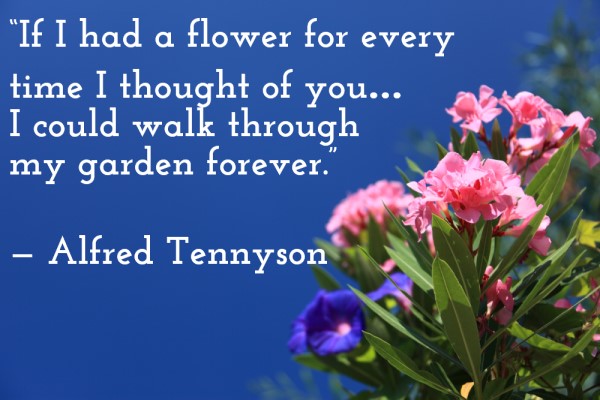
Get more like this straight to your inbox!
Plus our exclusive guide Things your mama never told you about talking dirty…
According to a study by Matthew Johnson et al. (2019) of the University of Alberta, the idea that you’re in a relationship that can last can influence the quality and outcome of your relationship. This makes sense, as the level of confidence influences how we interact, whether in positive or negative ways. So how is your level of confidence in your relationship? And, if this needs sprucing up, how can you do this?

 First things first, find out what your level of confidence in your relationship is. Test yourself with the five questions the authors in the study used to measure relationship confidence. Use a 1 to 7 scale of strongly disagree (1) to strongly agree (7) regarding your current relationship:
First things first, find out what your level of confidence in your relationship is. Test yourself with the five questions the authors in the study used to measure relationship confidence. Use a 1 to 7 scale of strongly disagree (1) to strongly agree (7) regarding your current relationship:
- I feel good about our prospects to make this relationship work for a lifetime.
- I am very confident when I think of our future together.
- I believe we can handle whatever conflicts will arise in the future.
- We have the skills a couple needs to make a marriage last.
- We can handle anything that comes our way.
Now, what to do about the results. Identifying strengths and weaknesses is the first step. Take a moment to celebrate any areas of strength and share any gratitude you have with your partner! See “How to Create Appreciation and Gratitude in Your Relationship” for a refresher.
Lower scores identify areas you may want to improve. If your level of confidence is low in, for instance, your ability to handle conflict, then working on conflict management skills would be a great thing to focus on. Check out these blogs: “Contempt, the Battery Acid,” “How to Get Rid of Criticism and Defensiveness,” “3 Ways to Keep Calm When Your Partner is Driving You Nuts!”, and “Do the Same Arguments Keep Coming Up Again and Again With Your Partner?”

 If you are concerned about other skills you will need, such as keeping romance alive, or building and maintaining trust, read up on these topics. You could start with “How Healthy is Your Sex Life?” and “How to Create Trust and Maintain Trust in Your Relationship.” Take time to reflect as honestly as you can, then have a conversation or two with your partner. If it feels daunting to do this on your own, participating in a workshop that focuses on these skills can make a world of difference. Or, if you would prefer more individualized support, consider a couple retreat.
If you are concerned about other skills you will need, such as keeping romance alive, or building and maintaining trust, read up on these topics. You could start with “How Healthy is Your Sex Life?” and “How to Create Trust and Maintain Trust in Your Relationship.” Take time to reflect as honestly as you can, then have a conversation or two with your partner. If it feels daunting to do this on your own, participating in a workshop that focuses on these skills can make a world of difference. Or, if you would prefer more individualized support, consider a couple retreat.
Whatever the results of your assessment, this is an excellent time of year to look under the hood of your relationship and tune up any areas that need addressing. This will help ensure you have a reliable and healthy ride for the year to come and beyond.
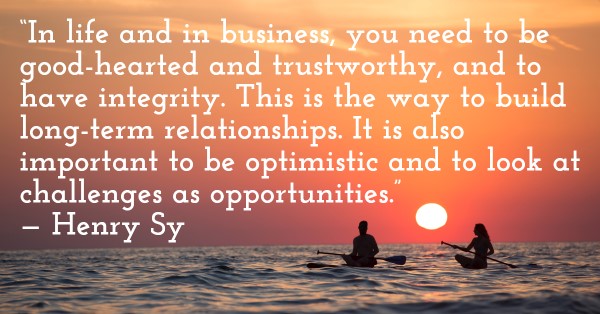
Get more like this straight to your inbox!
Plus our exclusive guide Things your mama never told you about talking dirty…

 For making significant changes in your relationship, the good news is that doing “small things often” will get you there. Dr. Gottman’s research shows that tiny moments in couple interactions make a big difference in the relationship over time. The first few moments in a conversation, for example, around a disagreement, predict not only how that conversation will go, but how the relationship will go (whether “happily ever after” or in divorce). I’ve talked about the four horsemen of the apocalypse in other blogs, and if you guessed that these were the things that predicted divorce, you would be right!
For making significant changes in your relationship, the good news is that doing “small things often” will get you there. Dr. Gottman’s research shows that tiny moments in couple interactions make a big difference in the relationship over time. The first few moments in a conversation, for example, around a disagreement, predict not only how that conversation will go, but how the relationship will go (whether “happily ever after” or in divorce). I’ve talked about the four horsemen of the apocalypse in other blogs, and if you guessed that these were the things that predicted divorce, you would be right!

 So, if I had only one recommendation to couples for a new year’s resolution, I would choose this one: get rid of the four horsemen in your relationship. Start by choosing one to work on. For instance, criticism. Step one, notice if you use any “you” statements (e.g., “You never take out the trash.”) or global statements (these include words like never and always). Step two, keep a journal of the times you notice when you use a criticism (a simple tally on your phone would work great). Step three, work on replacing these with I statements (“I feel about , I need .”). For example, “I feel irritated that the trash is overflowing, please help me by taking it out.” You can start small by practicing starting statements with “I.” Bonus step, tally the times you remember to use “I.” Step four, continue previous steps for at least six weeks.
So, if I had only one recommendation to couples for a new year’s resolution, I would choose this one: get rid of the four horsemen in your relationship. Start by choosing one to work on. For instance, criticism. Step one, notice if you use any “you” statements (e.g., “You never take out the trash.”) or global statements (these include words like never and always). Step two, keep a journal of the times you notice when you use a criticism (a simple tally on your phone would work great). Step three, work on replacing these with I statements (“I feel about , I need .”). For example, “I feel irritated that the trash is overflowing, please help me by taking it out.” You can start small by practicing starting statements with “I.” Bonus step, tally the times you remember to use “I.” Step four, continue previous steps for at least six weeks.
Once you have “you” statements reduced, you can focus on other horsemen, like defensiveness. The same steps above work for this one, in this case, replace the I statements with taking responsibility; for example, “You’re right, I haven’t taken out the trash yet.” Taking responsibility is the antidote for the second horseman. That “I statement” is also handy in avoiding defensiveness (which can take the form of a counter-attack, a critical statement or whining). After taking responsibility, it may be helpful to continue the conversation with your own perspective on the subject. So, the above example could be: “You’re right, I haven’t taken the trash out yet. I’ve been feeling stressed lately and would like to talk about how to handle household chores when we are so busy.”
If you focus on one horseman at a time, for six weeks each, it would only take you half the year. This will result in significant changes in your relationship for the better!
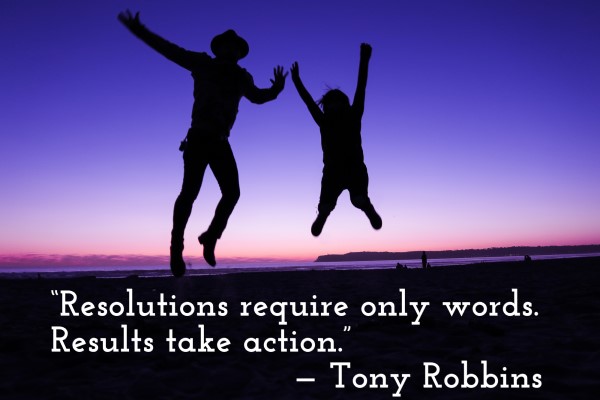
Get more like this straight to your inbox!
Plus our exclusive guide Things your mama never told you about talking dirty…
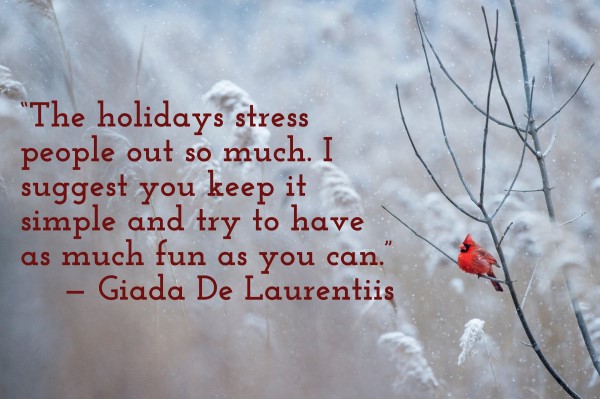
The holidays are notoriously stressful times, even though they are touted as being joyous occasions. Indeed, the expectations are that they should be full of happiness and meaning. But the holidays can be a time of loss (if someone is no longer with us to celebrate), conflict (with family members we may otherwise avoid), and dashed expectations. In some cases, someone may struggle with substance use, which can tilt events into chaos when folks have had a bit too much. So, what to do? Here are some things to consider:
- Have a conversation about the holidays in this way: Choose a holiday or tradition and have a conversation about how it should be celebrated. Discuss these questions: 1) What is meaningful about this for you? 2) When will this be done? 3) How often will it be done? 4) How long should it last each time? 5) Who will initiate it? 6) What will happen next? 7) How will it end? 8) How can we integrate this into our lives so we can count on it? These questions are useful for discussing any ritual of connection—these are events (daily, weekly, or annual) that connect you as a couple or family. Rituals of connection span things like how we say goodbye, bedtime, what happens when someone is sick, or dinner parties. Bill Doherty’s book, The Intentional Family, is an excellent resource on this topic. Once you have such a conversation as a couple, then the next tip may already be on its way.
- Set limits and expectations. Around the holidays, this is a must, both for ourselves and with others. If you are hosting an event in your home, consider setting clear expectations around allowable topics of conversation (leave politics at the door, for example). Choose a menu that limits problem areas and/or choose seating arrangements that may limit conflictual interactions. If you are someone else’s guest, have an exit plan in place. Agree ahead of time with your partner when, or under what circumstances, it would be best to say goodbye and leave; this could be very important. Also, have a conversation about the kind of support you want to provide one another. For example, “When your mother says , please say/do [be as specific as possible] to show you support me.” Or, “I need you to call me to another room when you see getting on my nerves.” You can also agree to take a break (the bathroom is a great option) of at least 20 minutes if needed (see 3 Ways to Keep Calm When Your Partner is Driving You Nuts!).
- Have ways of managing stress as a couple. One study found that couples who can buffer each other from the stresses of life do better over time. So, having conversations with your partner that allow you to vent (about things outside the relationship), or release stress, is essential. Be aware: problem-solving, in this case, is counterproductive; you need to slow things down and taking a break from problem-solving. It is hard to shift out of this mindset, particularly for men, who are generally socialized to be more comfortable solving problems (versus talking about feelings). Instead of problem-solving, focus on active listening (see A Simple Listening Exercise to Help You Become a Great Listener). Make sure to avoid the Four Horsemen (see Contempt, the Battery Acid and How to Get Rid of Criticism and Defensiveness). Listen intensely and offer support; more than anything else, show your partner that you are there for them. And only provide problem-solving tips (aka advice) to your partner if they ask you to. Take turns listening to one another for 10 minutes each. I recommend doing this as often as you experience stress outside your relationship—sounds like the holidays, right? Better yet, make this kind of conversation a daily ritual and take turns listening to one another year-round!


Get more like this straight to your inbox!
Plus our exclusive guide Things your mama never told you about talking dirty…
Have you ever heard anyone say, “I should take my own advice, shouldn’t I!” It turns out that giving advice to others actually can benefit you. A recent study in the journal PNAS showed that giving motivational advice raised academic achievement for the advisor. Here is the thinking about how this works:
- People who advocate for specific opinions or beliefs come to believe what they say to mitigate cognitive dissonance. In other words, if I give someone advice, but I don’t follow it myself, this causes psychological discomfort. This makes it less likely I will not heed my advice.
- The reflection entailed in generating advice may prompt advisors to formulate concrete plans for enacting the recommended behaviors in their own lives. For instance, if my goal is to buy a house, I can think about what advice I would give to someone else in this situation. I will ignore things that are out of their control (and mine). So I might suggest opening a savings account to save for the downpayment and automatically deposit into it, with every paycheck, before spending on anything else. What just happened is that I created a practical plan for reaching my goal!
- Giving advice, unlike taking advice, can increase confidence. It feels good to be able to show expertise and help others. And feeling confident in this way can improve motivation.


So how can this work in your relationship? If you want to improve your relationship in a particular area, say, improving your love life, you could write your own advice column on the subject. You might do some research, see what is out there, and choose some things that make sense to you to include in your column. (By the way, for ideas on this subject check out: “How Healthy is Your Sex Life,” “Sex and Relationships,” and the guide “Things Your Mama Never Told You About Talking Dirty…”).
Once you have your article completed, consider sharing it with your partner and having a conversation about it. Though I would caution against giving your partner advice—if they haven’t asked for advice, it may come across as criticism or worse. Or maybe you have a friend who would be interested in reading it. Or simply write it down in your journal. Whatever you choose to do, check back in a few months and see if you have followed any of your own advice!

Get more like this straight to your inbox!
Plus our exclusive guide Things your mama never told you about talking dirty…
 Dating can be exciting and fun, and being in love can be magical. But is there something you should be doing to see if this is the right person for you? Well, yes, as a matter of fact. Dating is about getting to know one another and, in this way, seeing if there is a good match between you, finding out how compatible you are with one another. Don’t get me wrong, no matter who you partner with, there will be differences that will need to be negotiated. Knowing about these ahead of time, before making a long term commitment, can help you decide if you are a good enough match for one another. This will improve the chance of your relationship being successful in the long term.
Dating can be exciting and fun, and being in love can be magical. But is there something you should be doing to see if this is the right person for you? Well, yes, as a matter of fact. Dating is about getting to know one another and, in this way, seeing if there is a good match between you, finding out how compatible you are with one another. Don’t get me wrong, no matter who you partner with, there will be differences that will need to be negotiated. Knowing about these ahead of time, before making a long term commitment, can help you decide if you are a good enough match for one another. This will improve the chance of your relationship being successful in the long term.

 I love the card deck 52 Questions Before Marriage or Moving In designed by Ursula Burton. The card deck has four categories: romance, social life, work, and money. Each card has questions to help you have meaningful conversations around these topics. For instance, a card under romance asks: “What are your views about having children? Pets? How strong are your positions about this? What, if anything, would change your mind?” Under social life, one card asks: “In what ways do your religious and/or political beliefs and practices, if any, differ from your partner’s? If you have children, with what beliefs and practices will you raise them?” Under work: “What reasons might there be for one or both of you to cut back on work hours or not work for money?” Under money: “How do you feel about any existing debt? About taking on more debt as a couple?”
I love the card deck 52 Questions Before Marriage or Moving In designed by Ursula Burton. The card deck has four categories: romance, social life, work, and money. Each card has questions to help you have meaningful conversations around these topics. For instance, a card under romance asks: “What are your views about having children? Pets? How strong are your positions about this? What, if anything, would change your mind?” Under social life, one card asks: “In what ways do your religious and/or political beliefs and practices, if any, differ from your partner’s? If you have children, with what beliefs and practices will you raise them?” Under work: “What reasons might there be for one or both of you to cut back on work hours or not work for money?” Under money: “How do you feel about any existing debt? About taking on more debt as a couple?”

As you can see, the card deck has great questions and conversation starters to help you explore life together. This will help you understand how good a match you are for one another, and what areas might be challenging to negotiate as a couple. It is crucial to know if there are any “deal breakers” in any of the differences you explore. Deal breakers are differences such that one of you will not be able to meet a core need; for example, one person wants to have kids, the other one does not. But keep in mind, outside of deal-breakers, differences do not mean your relationship won’t work. Differences are unavoidable. It is how you manage these differences—how you talk about them—that makes all the difference in the world. Knowing about these sooner rather than later can help you evaluate the next steps, such as further exploration, getting help from a trusted other to talk about difficult topics, or taking time to do some soul searching about your relationship.
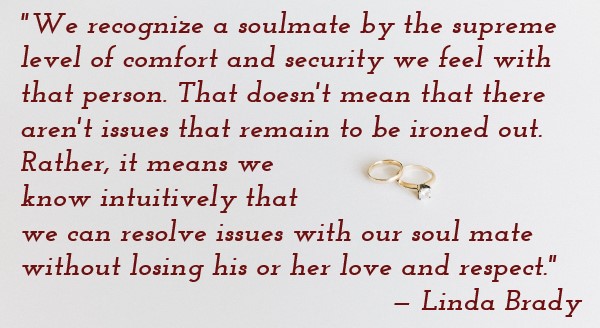
Get more like this straight to your inbox!
Plus our exclusive guide Things your mama never told you about talking dirty…
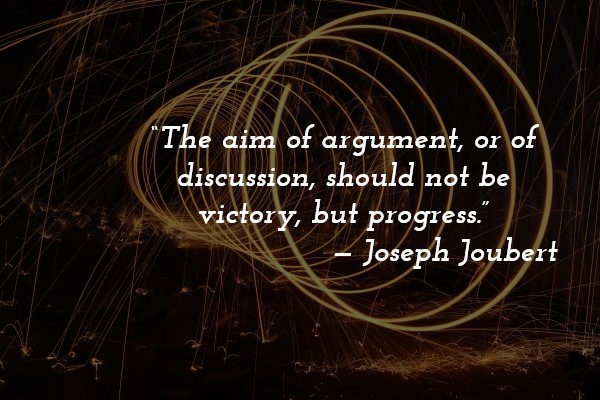
 Does your partner drive you a bit batty by doing the same thing over and over that they must know by now that it is a pet peeve of yours? Here is a little secret about disagreements with your partner: if the same argument keeps coming up, over and over again, you may be dealing with a “perpetual issue.” Dr. Gottman’s research has shown that perpetual issues make up about 69% of conflict couples have. These are issues that relate to fundamental differences between partners, such as differences in personality or lifestyle preferences.
Does your partner drive you a bit batty by doing the same thing over and over that they must know by now that it is a pet peeve of yours? Here is a little secret about disagreements with your partner: if the same argument keeps coming up, over and over again, you may be dealing with a “perpetual issue.” Dr. Gottman’s research has shown that perpetual issues make up about 69% of conflict couples have. These are issues that relate to fundamental differences between partners, such as differences in personality or lifestyle preferences.

When you are discussing a perpetual issue, the most valuable skill is establishing an ongoing dialogue about the issue. An essential part of this dialogue is to slow down the conversation. The aim is to understand what is going on underneath the surface. Then, with this understanding, explore options to make things better for both of you.

For example, take Joe and Mary. Mary wants to be on time, but Joe has a relaxed stance on timeliness. Is Mary’s need for timeliness about a value like respect? Is there a backstory that can help flesh out what is going on? Is Joe’s underlying value about relaxing and escaping the tyranny of time? Is there a disaster scenario for them around some aspect of this? The possibilities of what could be going on for each person are endless.
When we understand what is going on, for ourselves and our partner, and we both feel heard and understood, avenues for honoring each other’s needs become possible. A deeper understanding will allow you to experiment with possible solutions. But know that you will likely need to return to dialogue when it comes up again. As always, remember to avoid the Four Horsemen (contempt, stonewalling, criticism, and defensiveness).

Let us go back to Joe and Mary. For Mary, timeliness is about keeping her word and being responsible. For her, it is about how disappointed and let down she feels when others fail to show up for her. For Joe, his relaxed stance on time is about not worrying about responsibilities all the time. His story is about how stifling it was to grow up in a house where there was no space made for hanging out and being creative. With this understanding, Joe and Mary discussed ways to manage this difference. One option they came up with is deciding which events will be prioritized for being “on time” and which events both will be “more relaxed” about. They also decided to set up activities that are not bound by a set time frame.

Once you have set up a plan, give yourselves some opportunities to try it out. Come back and talk about it again after a while to see what may need to be adjusted. Remember that this is an ongoing conversation; keep experimenting, building on what you learn along the way.
While some arguments will change over time, others will stay with you as you find ways to deal with them. Keep in mind that differences are inevitable when two people love one another. The important thing is that the positive things about your partner and your relationship can far outweigh these differences.
Get more like this straight to your inbox!
Plus our exclusive guide Things your mama never told you about talking dirty…
Highly unlikely… for starters, “sex addiction” is not mentioned in the current Diagnostic and Statistical Manual of Mental Disorders (DSM-5), which is used to make diagnoses in the United States. The World Health Organization also does not use the term sex addiction in its diagnostic guide (it has “compulsive sexual behavior disorder”).
 How can we know if something (whether heroin, porn, sex, gambling, or alcohol use) is an addiction? According to Prof. Mark Griffiths, there are six criteria to consider: 1) Salience: does it dominate thoughts, feelings, and behavior? 2) Mood modification: is it used to shift mood? 3) Tolerance: are increasing amounts needed to achieve the same effect? 4) Withdrawal: do unpleasant feelings, or physical effects, occur when discontinued or suddenly reduced? 5) Conflict: does it create interpersonal conflict or intrapsychic (internal) conflict? 6) Relapse: is there a tendency for the activity to recur after years of abstinence or control? Another hallmark of addiction, according to Dr. Allen Frances, is that something that may have given pleasure at the beginning now no longer does so, but can’t be stopped. For most people, even though sex may create problems, the act itself remains pleasurable.
How can we know if something (whether heroin, porn, sex, gambling, or alcohol use) is an addiction? According to Prof. Mark Griffiths, there are six criteria to consider: 1) Salience: does it dominate thoughts, feelings, and behavior? 2) Mood modification: is it used to shift mood? 3) Tolerance: are increasing amounts needed to achieve the same effect? 4) Withdrawal: do unpleasant feelings, or physical effects, occur when discontinued or suddenly reduced? 5) Conflict: does it create interpersonal conflict or intrapsychic (internal) conflict? 6) Relapse: is there a tendency for the activity to recur after years of abstinence or control? Another hallmark of addiction, according to Dr. Allen Frances, is that something that may have given pleasure at the beginning now no longer does so, but can’t be stopped. For most people, even though sex may create problems, the act itself remains pleasurable.

I think it is clear that very few people would qualify, given the above criteria, for having a sex addiction. Yes, this behavior can create plenty of problems, but calling it a “sex addiction” may be more about avoiding taking responsibility than about dealing with an addiction. Yet the fallout from an affair is real, regardless of what it might be attributed to. But, if it is not due to “sex addiction,” what is it due to? Most likely, it is about trust, commitment, intimacy—either that these are lacking or are broken—and a host of other related issues.
To save a relationship after an affair takes a lot of work—from both partners. Even then, there is no guarantee of success. It is possible to create a healthy relationship after an affair if both partners are willing to put in the hard work. And for many couples, this is worth doing. It goes without saying that getting help can make a big difference; the-sooner-the-better. If you want to explore this option, contact me for a free phone consultation.
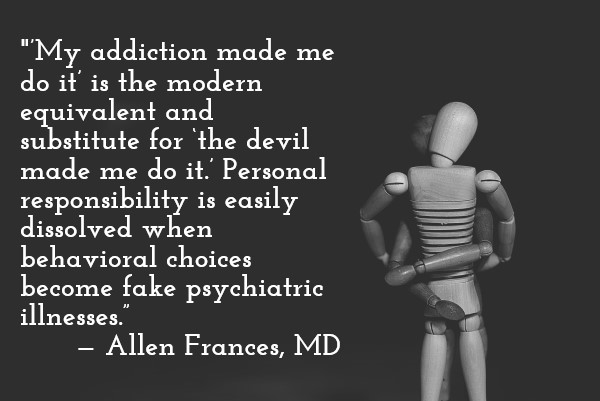
Get more like this straight to your inbox!
Plus our exclusive guide Things your mama never told you about talking dirty…
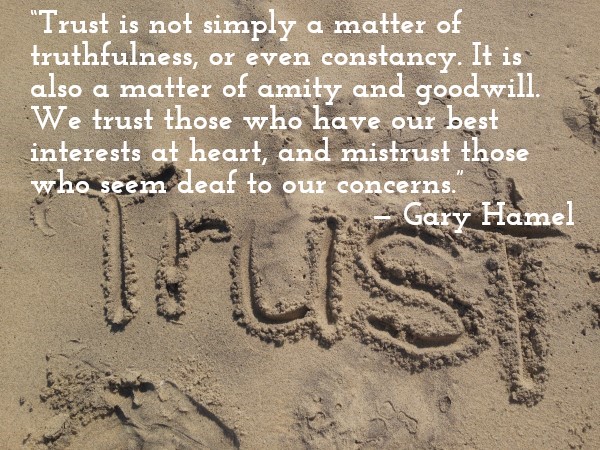
Everyone has some sense of what trust means in relationships. As it is a vital part of any healthy relationship, it is worth taking a look at. When trust is broken, any relationship is in serious trouble and likely to end.
 Take Judy, for example, who was in a relationship with a partner who cheated on her. For a long time, she wasn’t able to trust her partners as this experience “infected” her with jealousy and lack of trust. Years later she fell in love with Jack and she told him about her earlier experiences and her “hypersensitivity”—which, in this case, means being vigilant about something painful that has happened in the past. For Judy, this came not only from her prior cheating partner’s behavior but also from her father’s infidelity to her mother. Jack asked what it would take for her to trust him. She thought about it and asked that they have a “no secrets” policy; for her, this meant no secret passwords, Jack always being available by phone, and no repeated meals or business trips with attractive women. He was willing to meet all of her conditions and then some. Not only did Judy eventually stop being suspicious and jealous, but over time she was able to relax some of the conditions she had needed before.
Take Judy, for example, who was in a relationship with a partner who cheated on her. For a long time, she wasn’t able to trust her partners as this experience “infected” her with jealousy and lack of trust. Years later she fell in love with Jack and she told him about her earlier experiences and her “hypersensitivity”—which, in this case, means being vigilant about something painful that has happened in the past. For Judy, this came not only from her prior cheating partner’s behavior but also from her father’s infidelity to her mother. Jack asked what it would take for her to trust him. She thought about it and asked that they have a “no secrets” policy; for her, this meant no secret passwords, Jack always being available by phone, and no repeated meals or business trips with attractive women. He was willing to meet all of her conditions and then some. Not only did Judy eventually stop being suspicious and jealous, but over time she was able to relax some of the conditions she had needed before.

In relationships, trust occurs when we know our partner acts and thinks to maximize our best interests and benefits, not just their own. It’s that sense that our partner has our back and is there for us and is willing to be consistent in meeting our needs. The first step in building this kind of trust is listening with compassion and understanding to one another, just as Jack did for Judy.
Did you notice the listening part above? Learning how to be a great listener is a skill you can work on. Start with this simple listening exercise to help you become a great listener. As to compassion and understanding, stay tuned for more…
Get more like this straight to your inbox!
Plus our exclusive guide Things your mama never told you about talking dirty…
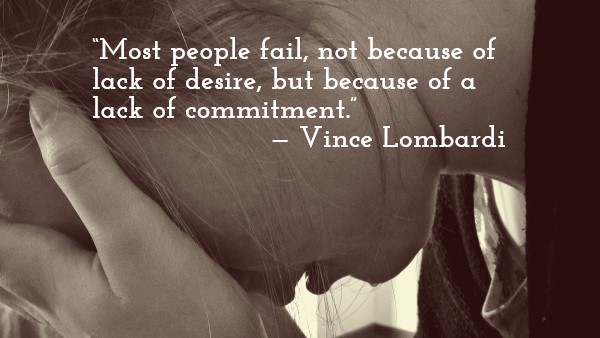
Commitment can be defined as “the state or quality of being dedicated.” In the context of a relationship, a useful way of looking at commitment is this: believing, and acting on, the understanding that this relationship, with this specific person, makes one's life-long journey complete.
 A lot of the couples who come for my guidance question their commitment. In all cases the marriage vow, “for better or for worse,” applies—with the understanding that when worse both must work to make improvements. So, when things have tipped into “worse,” what can you do? First and foremost, make sure the four horsemen (Contempt, Criticism, Defensiveness, and Stonewalling) are out of the equation—this is the solid foundation upon which to proceed. Effective communication is also essential; so practice your listening skills—be a good listener for one another. Be gentle with one another when discussing the pain points in your relationship. Don’t be afraid to get support if you need it—and do this sooner rather than later—particularly if you find it is hard or painful. One way to get hands-on experience with these skills is to participate in one of The Art & Science of Love workshops, or get personalized coaching.
A lot of the couples who come for my guidance question their commitment. In all cases the marriage vow, “for better or for worse,” applies—with the understanding that when worse both must work to make improvements. So, when things have tipped into “worse,” what can you do? First and foremost, make sure the four horsemen (Contempt, Criticism, Defensiveness, and Stonewalling) are out of the equation—this is the solid foundation upon which to proceed. Effective communication is also essential; so practice your listening skills—be a good listener for one another. Be gentle with one another when discussing the pain points in your relationship. Don’t be afraid to get support if you need it—and do this sooner rather than later—particularly if you find it is hard or painful. One way to get hands-on experience with these skills is to participate in one of The Art & Science of Love workshops, or get personalized coaching.

What if you want to ensure your commitment is in good shape and stays that way? In this case, gratitude is key, so find ways to celebrate the wonderful things about your relationship and your partner—be sure to cherish the positive. Beware of trashing your partner (with others or in your thoughts), avoid making negative comparisons of your partner with others, or nurturing resentments. For partners who have fallen into this, there is a higher risk of an affair (emotional and/or physical). When concerns arise, address them—be gentle. This can lead to more intimacy and prevent the erosion of commitment.
Get more like this straight to your inbox!
Plus our exclusive guide Things your mama never told you about talking dirty…
 If you were to guess what men would say they want more of in a relationship, what would you guess?
If you were to guess what men would say they want more of in a relationship, what would you guess?  Sex? Actually, according to research done by C. Northrup, P. Schwartz and J. Witte, and written about in The Normal Bar, it is communication. For men in unhappy relationships, they were asked to choose from nine answers. Sex was not their number-one wish. The top wish was for communication, then affection, and sex was in third place. Complaints weren’t all that different for unhappy women, whose list had communication first, affection second, and then financial stability in third. For happy couples, both women and men said they wished for nothing to be in first place (in other words, all their needs were met!), then there was a tie between sex for men and communication for women, in second place.
Sex? Actually, according to research done by C. Northrup, P. Schwartz and J. Witte, and written about in The Normal Bar, it is communication. For men in unhappy relationships, they were asked to choose from nine answers. Sex was not their number-one wish. The top wish was for communication, then affection, and sex was in third place. Complaints weren’t all that different for unhappy women, whose list had communication first, affection second, and then financial stability in third. For happy couples, both women and men said they wished for nothing to be in first place (in other words, all their needs were met!), then there was a tie between sex for men and communication for women, in second place.

 So, for both men and women, communication tops the list of what we want more of in our relationships. Happy relationships, when they are working well, have plenty of this, and we lack for nothing. When things aren’t optimal, we crave more communication. The art of intimate conversation, then, is the key to a better relationship. Check out earlier blogs on how to communicate effectively to buff up on these skills (How to get rid of criticism and defensiveness, A simple listening exercise to help you become a great listener, and Contempt, the battery acid). Make sure there are plenty of moments in your life together as a couple when you take time to foster good communication. This is not just talking about good things, though this is important, but also about things that aren’t perfect. Finding ways to keep communication flowing in gentle ways with one another is the best way to make sure the engine of your relationship has all the oil and gas it needs to run smoothly for the long haul. This takes some time and attention, but it is worth it.
So, for both men and women, communication tops the list of what we want more of in our relationships. Happy relationships, when they are working well, have plenty of this, and we lack for nothing. When things aren’t optimal, we crave more communication. The art of intimate conversation, then, is the key to a better relationship. Check out earlier blogs on how to communicate effectively to buff up on these skills (How to get rid of criticism and defensiveness, A simple listening exercise to help you become a great listener, and Contempt, the battery acid). Make sure there are plenty of moments in your life together as a couple when you take time to foster good communication. This is not just talking about good things, though this is important, but also about things that aren’t perfect. Finding ways to keep communication flowing in gentle ways with one another is the best way to make sure the engine of your relationship has all the oil and gas it needs to run smoothly for the long haul. This takes some time and attention, but it is worth it.

Get more like this straight to your inbox!
Plus our exclusive guide Things your mama never told you about talking dirty…
If your partner has ever driven you nuts, you know what I mean when I say, “I’m allergic!” What are some “epi pen” solutions?
 Take a break. When things get a bit too heated, taking a break is a must! Take at least 30 minutes to calm down, doing something that takes your mind off your partner (take a walk, listen to music, take a bath, watch cat videos, etc.).
Take a break. When things get a bit too heated, taking a break is a must! Take at least 30 minutes to calm down, doing something that takes your mind off your partner (take a walk, listen to music, take a bath, watch cat videos, etc.). Make sure to make a pact with your partner (ahead of the need for a break) to come back together and talk after you both are calm, so that there is no one left hanging with unfinished business.
Make sure to make a pact with your partner (ahead of the need for a break) to come back together and talk after you both are calm, so that there is no one left hanging with unfinished business.- Meditate/Relax. There is research to indicate that consistent meditation practices help us stay more calm during stressful situations as this builds up our ability to be calm in general.

 Here is a quick meditation/relaxation exercise: 1) Slowly take two deep breaths in and out, from deep in the belly. 2) Slowly check in with the five senses (hearing, sight, smell, taste, sensation of the skin) with eyes gently closed or with a soft focus (not looking at anything in particular), taking two slow deep breaths in between each sense. 3) Gently tense and relax major muscle groups in the body (squinch up the face, shrug the shoulders up, tense the arms out in front, tighten abdominal muscles, arch back, tighten leg muscles), doing so twice each area before moving on. 4) Take two deep slow belly breaths. 5) For a few minutes, release focus and let thoughts, feelings, emotions, memories, etc., pass by as in thought bubbles that float away. Each time you realize you are focusing on something, let it float away in a thought bubble. 6) Take two deep and slow belly breaths and open your eyes (if closed) when you are ready.
Here is a quick meditation/relaxation exercise: 1) Slowly take two deep breaths in and out, from deep in the belly. 2) Slowly check in with the five senses (hearing, sight, smell, taste, sensation of the skin) with eyes gently closed or with a soft focus (not looking at anything in particular), taking two slow deep breaths in between each sense. 3) Gently tense and relax major muscle groups in the body (squinch up the face, shrug the shoulders up, tense the arms out in front, tighten abdominal muscles, arch back, tighten leg muscles), doing so twice each area before moving on. 4) Take two deep slow belly breaths. 5) For a few minutes, release focus and let thoughts, feelings, emotions, memories, etc., pass by as in thought bubbles that float away. Each time you realize you are focusing on something, let it float away in a thought bubble. 6) Take two deep and slow belly breaths and open your eyes (if closed) when you are ready.
I recommend practicing something like this twice a day for at least 10 minutes each, with the goal of twice a day for twenty minutes. This exercise is ideal to practice when you need that break. - Put the situation into context. When things are calm, make a list of wonderfuls that you love about your partner. Pull this out when it’s hard to remember anything good about the relationship. No one is perfect, and any time we partner up, there will be inevitable differences that will rub up against one another. When your partner is particularly irritating, having a way to remind ourselves of the qualities that we love or depend on can help us change perspectives a bit, as in, “Yes, when they do that it drives me nuts, but I couldn’t live without their (sense of humor, dependability, etc.).”
All of this does not mean that there are situations or relationships that need to be addressed with professional help, or relationships that need to be re-evaluated due to safety, but most of us have run into moments with our partners that are just plain irritating. When this happens, taking a break and having the other two actions in your resource bag can make a huge difference!


For those of you keeping track, taking a break relates to the Fourth Horsemen, stonewalling (when one partner shuts down, either due to flooding and/or attempting to manage a very stressful situation). When one partner shuts down and/or is too upset to interact usefully, it is time to take a break and then be committed to come back together in a calm moment to address whatever concern needs to be addressed.
Get more like this straight to your inbox!
Plus our exclusive guide Things your mama never told you about talking dirty…
 If you’ve ever heard of the Four Horsemen of the Apocalypse, you know they mean trouble. In the book of Revelation of the Christian bible these were folks on horses you never wanted to see coming your way: war, famine, plague, and conquest.
If you’ve ever heard of the Four Horsemen of the Apocalypse, you know they mean trouble. In the book of Revelation of the Christian bible these were folks on horses you never wanted to see coming your way: war, famine, plague, and conquest.  In relational terms, Dr. John Gottman identified four interactional patterns in his research with couples that can spell doom for relationships if they run rampant and he called them the Four Horsemen. So these are four things you want to make sure are not a part of your relationship. I’ve talked about Contempt in a prior blog. Contempt is one to get rid of entirely as it is the one most strongly linked to divorce.
In relational terms, Dr. John Gottman identified four interactional patterns in his research with couples that can spell doom for relationships if they run rampant and he called them the Four Horsemen. So these are four things you want to make sure are not a part of your relationship. I’ve talked about Contempt in a prior blog. Contempt is one to get rid of entirely as it is the one most strongly linked to divorce.
Today I want to introduce you to another two, criticism and defensiveness. This unlovely pair is like a match set and generally go together. Let’s say I bring up an issue with my husband by saying, “You never do any dishes around here!” If you heard this coming your way, how might you react? Maybe with defensiveness? This is why these two are linked. Criticism is bringing up an issue or complaint in such a way as to point the finger at the other person. Usually there are global statements involved, like “You always,” or “You never.” You might be thinking to yourself, “Well, it’s true! There are dirty dishes in the sink as we speak!” It is important to talk about complaints we may have. Bringing up issues is necessary in all relationships. It’s the way we do this that is important. The antidote to criticism is bringing up an issue using this formula: “I feel about . I need .” You may recognise this as an I statement, and you’d be right! “I feel irritated that there are dishes in the sink. I need some help around the house” is a much better way of bringing up those nasty cruddies over there. Using an I statement does not guarantee a successful conversation, but at least it gets the conversation going in a more gentle way.
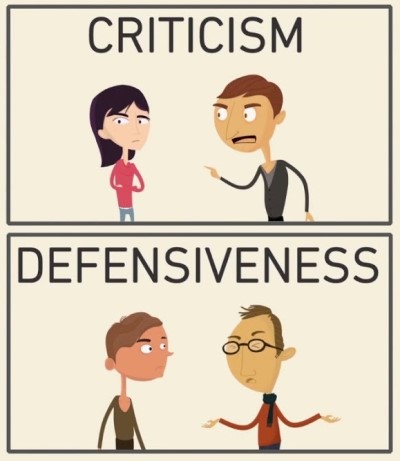

Defensiveness comes in at least a couple of different forms. When I feel attacked (maybe even when I may not be under attack), I will likely be defensive and may respond with, say, a counter attack. When I hear, “You never do the dishes!” I might respond with, “Well, you never water the plants!” Or I may respond with taking an innocent victim stance (the whiny option), “I didn’t know I was supposed to do the dishes! No one ever tells me things around here!” The antidote to defensiveness is taking responsibility, even for a small part of what is being discussed. For instance, in the example of the dishes, “I saw those dishes in the sink, and it would have been better for me to do them, but I was running late for work this morning, so they didn’t get done.” I once worked with a couple who had been working on getting rid of the four horsemen. One week, one partner said that things had gone better, but couldn’t put their finger on why. It turned out that their partner had decided to work on being non-defensive in their responses. It felt like magic! When one partner felt that their partner had heard them, the tone of the conversation changed and they were able to talk about what needed to be discussed in a calm and productive way.
If we have the habit of being critical and defensive, it might take some time to begin doing things differently, but it is so important to do so! No one wants to live with impending doom! If it feels like this is the case in your relationship, take a look at the way your conversations start, how you respond to one another, and work on talking about things differently. If this proves too hard to do on your own, consider attending a workshop or working with a therapist on practicing different ways to communicate.
Get more like this straight to your inbox!
Plus our exclusive guide Things your mama never told you about talking dirty…


I’ve mentioned date night a few times in my blogs, but it is worth spending a little bit more time on it. One of the big differences between couples who have great relationships and those who don’t is that the former continue to date one another throughout their relationship. Dating isn’t just important for starting a relationship, but for making it shimmer throughout the rest of your life! But once you know someone, you might think, why date? Would you be surprised to hear that having good dates leads to greater satisfaction in the bedroom? If you’ve been following along in my blogs, this shouldn’t be a shock. The research has shown that a strong friendship is related to satisfaction with romance, passion, and sex in relationships. Continuing to date on a weekly basis creates opportunities to keep your friendship thriving.
Sometimes couples complain that the spark has gone out in the bedroom. Then they admit that they don’t put much time into their relationship, but expect that passion, sex and romance should somehow just materialize! That’s not the way it works when we’re single and dating, why should it work when we are partnered? Put another way, think back to when you were dating. Were you guaranteed to “get lucky” when you were going on a date? No. But what did we all do? We primped (a little trimming here and there, a bit of “smells-good” over there, …), planned (when and where we were going), and did all we could to get ourselves ready for the possibility of romance. So! Continue dating if you want the possibility of romance and passion to continue in your relationship!


If you’ve run out of ideas as to what to do on a date, download the Gottman Card Decks app and check out Opportunity cards for some ideas. The app has other categories that will help you have topics to talk about (e.g., Open-Ended Questions, Love Maps), as well as tips on how to be a good listener and more. You'll find plenty more ideas on-line, such as 70 date night ideas by Mantelligence (e.g., “Go to an interactive play where you’d be part of the story and open the treasure chest of each other’s imagination.”). For those on a budget Dave Ramsey has some suggestions (e.g., “Listen to your throwback records, vintage tapes, or mixed CDs. Pick the ones that were important to you when you two were dating.”)
The weekend is coming, folks. Get out there and go on a date!
Get more like this straight to your inbox!
Plus our exclusive guide Things your mama never told you about talking dirty…

 The more couples are able to look for, and acknowledge, positive qualities and happenings in their relationship, the more trust and admiration is built in the relationship. One example of a benefit of this is demonstrated in a study that found that folks who took time to express gratitude for their partner felt more positive toward their partner, and this helped interrupt negative communication patterns in their relationship that resulted from stress. This is because fondness and admiration helps build a strong bond that makes it easier to weather the storms of life.
The more couples are able to look for, and acknowledge, positive qualities and happenings in their relationship, the more trust and admiration is built in the relationship. One example of a benefit of this is demonstrated in a study that found that folks who took time to express gratitude for their partner felt more positive toward their partner, and this helped interrupt negative communication patterns in their relationship that resulted from stress. This is because fondness and admiration helps build a strong bond that makes it easier to weather the storms of life.
So how can you create more of this? Here is a simple exercise. Look for ways to give appreciations, at least once a day, and make a point to share these with your partner. Here are some examples of what you can say when you notice something to appreciate:
- Thanks for being such a great mom/dad. (Give specifics)
- I really appreciate you being so affectionate lately. (Give specifics)
- Thanks for helping out with the dishes (or other task)!
- Taking a walk together was really nice.
- I want to thank you for the card and the great words on it.
- You look great in that.
- Thank you for caring about what I need.
- Thanks for making me feel like I come first in your life.
- I’m really proud of you. (Give specifics)
- Thanks for just being there when I needed to feel support.


For more examples of how to give appreciations check out the Gottman Card Deck App and look for the give appreciation deck.
It is important to keep practicing! Gratitude helps us refocus on what we have instead of what we don’t have. Even though an exercise like this may feel a bit contrived at first, this “attitude of gratitude” grows stronger with use and practice and has great benefits for our relationship!
Get more like this straight to your inbox!
Plus our exclusive guide Things your mama never told you about talking dirty…
We know a few things about couples who have great sex lives. You may remember from a prior blog that couples who have good sex lives have good friendships — the two are linked! We know this from the research that has been done with couples. Take this quick quiz to see if your relationship has these ingredients for a great sex life.

 Put a check mark by each item that you can say “yes” to:
Put a check mark by each item that you can say “yes” to:
- Say “I love you” every day and meant it.
- Cuddle.
- Give each other compliments.
- Kiss one another passionately for no reason.
- Physically affectionate, even in public.
- Keep playing and having fun together.
- Make sex a priority, not the last item of a long to-do list.
- Take romantic vacations.
The more check marks you have, the more likely your sex life is healthy. If you don’t have a lot of check marks, this may be a clue that your sex life could be improved (you may already suspect this).

 What do you do if you want to see improvements? Look for ways to improve your friendship. For example, practice having intimate conversations and deeply listening to one another. Or making sure that you have meaningful time that you spend with each other on a consistent basis (even in small moments) every day, every week, and throughout the year.
What do you do if you want to see improvements? Look for ways to improve your friendship. For example, practice having intimate conversations and deeply listening to one another. Or making sure that you have meaningful time that you spend with each other on a consistent basis (even in small moments) every day, every week, and throughout the year.
Don’t wait to make improvements! And if you need some help, don’t be afraid to take action. Download the free Gottman Card Decks app and give it a try for great tips on conversations to have and how to have them. You can look into taking a couple’s workshop, such as The Art & Science of Love, or consider couples counseling. Great friendships and great romance and passion take a bit of work. Your relationship is worth it!
Get more like this straight to your inbox!
Plus our exclusive guide Things your mama never told you about talking dirty…
One of the wonderful gifts we can give to one another in relationships is the gift of being a great listener. Good listening creates intimate conversation, trust, and love! How can we practice this? I have found it helpful to give couples straightforward exercises to help them learn how to do this.
Here is one: Take turns asking your partner the following questions. Then use the following short lists for specific things you can ask or say to help you learn to be a great listener.

Tell me what in this world is currently making you: 1) angry; 2) sad; 3) afraid or worried; 4) hopeful; 5) happy; 6) stressed.
Questions You Can Ask As You Listen:
- How did all this begin, what was the very start?
- Do these feelings and needs have any spiritual, moral, ethical, or religious meaning for you?
- Who are the main characters in these feelings?
- How are you thinking about how all of this fits into your life as a whole?
Statements to Explore Feelings and Needs As You Listen:
- Help me understand your feelings a little better. Say more.
- If you could change the attitudes of one of the key people in this situation, talk about what you would do.
- Help me understand this situation from your point of view. What are the most important points for you?
Expressing Empathy and Understanding As You Listen:
- You’re making total sense.
- I understand how you feel.
- I wish I could have been with you in that moment.
- I see. Let me summarize: What you’re thinking/feeling here is…
- Wow! That must have (hurt; made you feel angry; been a relief; etc.).
- No wonder you’re upset.
- That would make me feel (hurt; angry; upset; sad; happy; relieved; insecure; etc.).

The goal here is just to understand. Remember to avoid being critical, judgmental, defensive, and don’t engage in put downs or superiority (there are prior blogs on the Four Horsemen and how to avoid them).
These are great conversations to plan to have, perhaps once a week to practice listening to one another. Give it a try!
Get more like this straight to your inbox!
Plus our exclusive guide Things your mama never told you about talking dirty…
We all want more intimacy in our relationships, since feeling close leads to more good things in our life (like romance, passion, and sexual intimacy). One way to do this is to be intentional about creating shared meaning in our relationship. Here are four easy steps to build more of this into our relationship:
- Have a conversation about how you can support one another in your central life roles (mom, dad, son, daughter, brother, sister, friend, worker, etc.). Take turns listening and speaking about this, interviewing your partner as if you were a reporter gathering information (it is helpful to take notes!).

- In the same way, have another conversation about how to support one another in your central values and symbols (e.g., what is “home"?, what does “love” mean to you?, what does “family” meant to you?). This can be several conversations. Take your time and explore with one another what each means.

- Think about what it means to live ethically in the world. What might it mean to do this together as a couple? After talking about this, decide on one way you will do so, intentionally, together.

- I like the concept of Tikkun Olam, which is Hebrew for making the world a better place because of your life. What might it look like to work on this as a couple? What legacy would you like to build together?

These are great conversations to have on a date night! Or perhaps have an evening a week when you both know you will talk about one of these things — come prepared with some pre-pondering done to share with one another. When we know each other more deeply and feel supported in important ways, good things will happen in our relationship!
Get more like this straight to your inbox!
Plus our exclusive guide Things your mama never told you about talking dirty…

 Loneliness has been discussed recently as a major problem, not just for our society, but for our health. It is a predictor of premature death and is a bigger risk factor than obesity in this regard; it is the equivalent of smoking up to 15 cigarettes a day (according to Julianne Holt-Lunstad at Brigham Young University). Those of you who are married will know that being married does not protect you from loneliness. 43% of adults who participated in a 2012 study, which followed 1,600 adults over 60 for six years, reported loneliness, and more than half were married. Why is this, and what can be done?
Loneliness has been discussed recently as a major problem, not just for our society, but for our health. It is a predictor of premature death and is a bigger risk factor than obesity in this regard; it is the equivalent of smoking up to 15 cigarettes a day (according to Julianne Holt-Lunstad at Brigham Young University). Those of you who are married will know that being married does not protect you from loneliness. 43% of adults who participated in a 2012 study, which followed 1,600 adults over 60 for six years, reported loneliness, and more than half were married. Why is this, and what can be done?
The research done by Dr. John Gottman on marriage and relationships, both the ones that are healthy and the ones that are not, sheds some light on this. What we have discovered is that couples who begin to have trouble enter into what we call a Distance and Isolation Cascade as is shown in the following diagram:
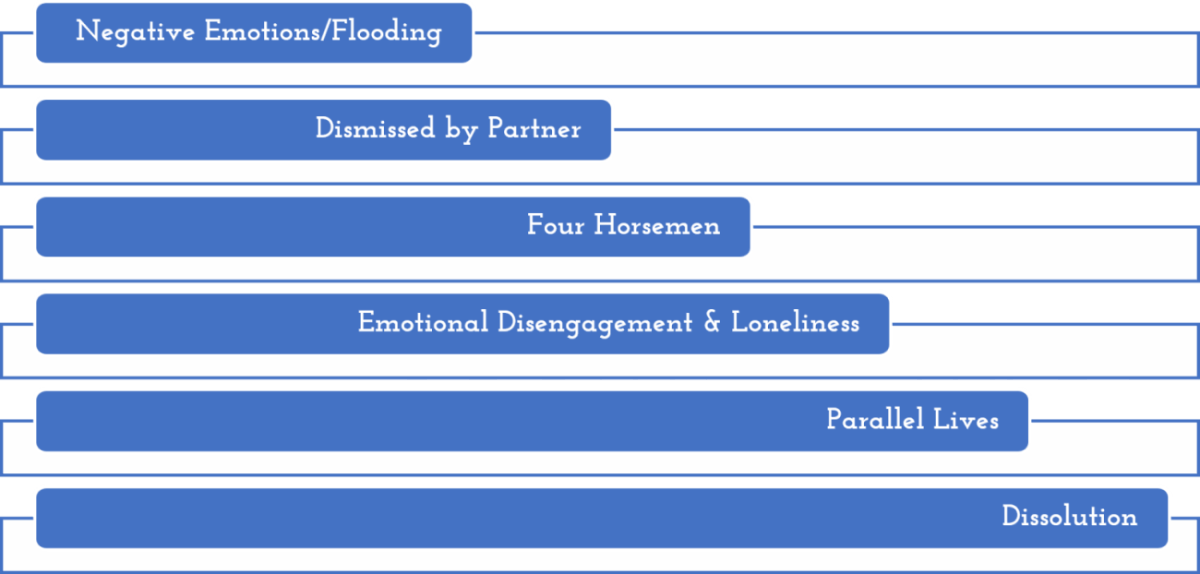
When couples are not able to nurture intimacy and manage conflict in such a way as to use conflict as a path to closeness they can enter into this Cascade of negativity/flooding, feeling dismissed, use of the Four Horsemen in conflict discussions (criticism, defensiveness, contempt and stonewalling), and then can enter emotional disengagement and loneliness in the marriage, which eventually leads to parallel lives (roommates, at best) and then divorce. What we have learned from successful couples is how to avoid this cascade through staying connected in our everyday lives, talking about differences and irritations in gentle ways, and repairing interactions when they go imperfectly. What is encouraging is that these skills are what every day folks can use, not just in our long-term relationships, but in every important relationship we have as an antidote to loneliness and disconnection.
For more information on how to learn these skills, check out upcoming dates for couple’s workshops or set up a time to discuss one on one how to learn these skills for yourself.
Get more like this straight to your inbox!
Plus our exclusive guide Things your mama never told you about talking dirty…
“What makes sex exciting is really the sense of someone allowing you into their life...it's exciting because it's permission.”
– Alain de Botton (from an interview with Debbie Millman on Design Matters, 27 June 2016)
We know from the research that's been done that a good sex life for a couple depends on how well the friendship is going lately. I've talked before about how to keep passion alive with consistent moments of connection (enter: Date Night!). What I love about Alain de Botton's perspective here is that, in the context of a long term relationship, there are hundreds of ways to think about our connections as good foreplay. How do we let our partners into our lives? Are we intentional? Does it stop or have an expiration date? It certainly doesn't have to! If we are keeping up our friendship, learning and exploring about one another, the excitement and permission never have to stop, they can deepen.
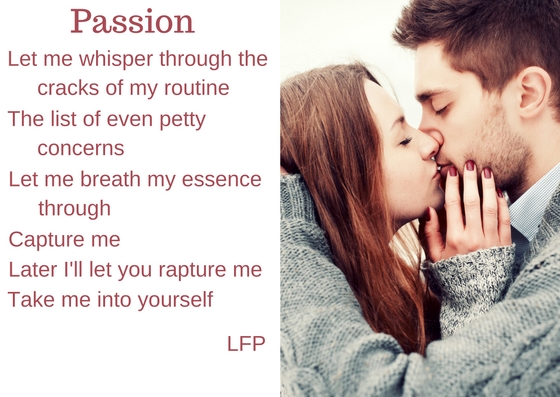
Get more like this straight to your inbox!
Plus our exclusive guide Things your mama never told you about talking dirty…
Here are some statistics about cheating compiled by Menstuff®
- 2% of married men have strayed at least once during their married lives.
- 14% of married women have had affairs at least once during their married lives.
- Younger people are more likely candidates; in fact, younger women are as likely as younger men to be unfaithful.
- 70% of married women and 54 percent of married men did not know of their spouses' extramarital activity.
- 5% of married men and 3 percent of married women reported having sex with someone other than their spouse in the year 1997.
- 22% of men and 14% of women admitted to having sexual relations outside their marriage sometime in their past.
 Note that the above adultery statistics of the prevalence of affairs were made more than a decade ago; so based on changes in society during the intervening years, the current percentage of the population who have had affairs is probably somewhat HIGHER. For instance, the continuing increase of women in the workplace and the increase of women having affairs on the Internet means that the numbers for women having affairs is probably similar to those for men—about 60%.
Note that the above adultery statistics of the prevalence of affairs were made more than a decade ago; so based on changes in society during the intervening years, the current percentage of the population who have had affairs is probably somewhat HIGHER. For instance, the continuing increase of women in the workplace and the increase of women having affairs on the Internet means that the numbers for women having affairs is probably similar to those for men—about 60%.
We all know, or suspect, what some of the effects of infidelity are for couples, children and families. The cost of divorce, the stress for all involved, the time it takes to recover (if one recovers), all make for grim consideration. Is it possible to recover? If a couple wants to stay together, is it even a good idea to try?
It is possible for couples to rebuild their relationship. There is no guarantee (there are so many variables, like the willingness of each partner to put in the work required, the severity of the infidelity, etc.), but there are couples who are able to rebuild a healthy relationship after the bomb of infidelity has struck. Notice I mention the word "rebuild." Once the betrayal of trust most certainly involved in infidelity is experienced, the couple must start from scratch. The first relationship (pre-infidelity) is destroyed and relationship #2 must be built. But couples have been able to do exactly this, and have been able to build a relationship that is healthy and thriving.
This takes a tremendous amount of work and most couples need support to accomplish this. It is wise to seek both professional help and any kind of other support that is available to take this task on. But given the cost of divorce and the other costs involved, it may well be worth it to try.
Get more like this straight to your inbox!
Plus our exclusive guide Things your mama never told you about talking dirty…

We’ve all heard divorce rates such as the one that states that 50% of all marriages end in divorce. While this may not actually be the case (there is some indication that, for instance, 70% of marriages that began in the 1990s reached their 15th anniversary, up from roughly 65% of those that began in the 1970s and 1980s, and couples who wed in the 2000s are divorcing at even lower rates, according to the New York Times in 2014), you may be wondering if your relationship is in danger of “going through the Big D.” And now that same sex couples are increasingly joining traditional couples in the sacred bonds, are we going to see the numbers increase?

Predicting divorce may be part of the key to an antidote for divorce. Research has actually been done in this area by Dr. John Gottman. Dr. Gottman found that for couples who would eventually divorce, when they talked about an area of disagreement, there was slightly more negativity than positivity, as compared to those couples who would stay together — 1.25 times more negative than positive, in fact. But for the couples who were in stable, happy relationships — couples who reported liking one another — they had a ratio of positive to negative interactions of 5:1 (positivity was expressed five times more than negativity) when discussing an area of disagreement. When relationships were happy, the ratio was 20:1 of positive to negative expressions when simply conversing.
So, take a look at your relationship and think about how often your interactions are positive, how often they are negative. It may sound like common sense, but this is common sense backed up by research: knowing how to nurture good interactions in your relationship is one key to staying together.
Get more like this straight to your inbox!
Plus our exclusive guide Things your mama never told you about talking dirty…


Is your relationship doomed? It might be, if contempt runs rampant — it is the best predictor of divorce.
How to avoid being contemptuous toward your spouse:
- Avoid sarcasm (comments like, “I’ll bet you do!” or “Oh, that was super funny” in a sneery tone of voice).
- Avoid body language that often goes along with sarcasm or can simply stand alone as a response (rolling your eyes, smirking one side of your cheek into a dimple). These are actually cross cultural signals of contempt.
- Don’t make “jokes” at the expense of your partner, or make universal comments about his/her gender (again, usually accompanied by the gestures in #2).
Do instead:
- Keep the focus of your responses and interactions on yourself instead of on your partner, describing your own feelings and needs.
- Create a culture of appreciation in your relationship through positive interactions.
- Work on a positive habit of mind instead of scanning for the negative around you.
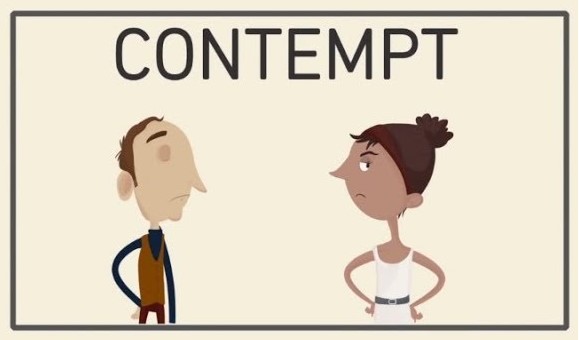

Why is it important to avoid contempt? Contempt, which is to put someone down and/or put yourself on a pedestal at the expense of another, is one of the best predictors of divorce all on its own. But along with criticism, defensiveness and stonewalling, contempt can predict almost certain doom for any relationship. Contempt has also been linked to predicting the number of infectious illnesses the recipient will experience over a four year period. Powerful stuff, just like battery acid!
Get more like this straight to your inbox!
Plus our exclusive guide Things your mama never told you about talking dirty…
Why are there so many jokes about relationships and marriage? It seems at least half are about sex and the loss of romance and passion. How is passion kept alive over the long haul? Psst! The secret, bend close, is … friendship! — Surprised? If your partner has been a good friend lately you are more likely to be in the mood to play together and have fun. But with kids, work, and all the stress of modern life, you might ask, how the heck are we to find time for that? This is challenging, and the answer to that is as specific as the couple.

Here are some ideas:
- Date night. You might have heard of this and thought it was corny, but if you want to keep romance and passion alive, keep dating your partner! Dates are times to catch up and stay in tuned with your partner’s world. This is key to any friendships (pssst, the secret, remember?).
- Have moments through the day that you connect habitually, if only for a moment: a kiss goodbye before work, a kiss hello (make this one long and slow), a quick back scratch before sleep.
- Check-ins at the end of the day about how your days went.
- Going for a hike on the weekend.
- Watch a movie together once a month and talk about it.
- Cultivate a mutual hobby and do activities around this weekly or monthly.
You get the idea! Have activities and habits in your life together that cultivate closeness and friendship and the passion and romance in your life will thrive.
Get more like this straight to your inbox!
Plus our exclusive guide Things your mama never told you about talking dirty…

